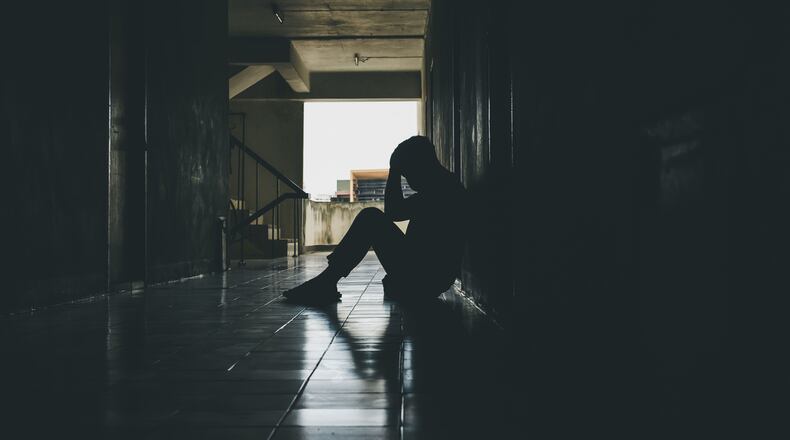“When I was a kid, we just had a landline,” she said. “If you were being bullied, you got to go home and that was the end of it. Now bullying happens so easily. It’s harder to get away from because of social media and technology. And it can be done anonymously. People will say something [online] that they never would to someone’s face.”
• HOW TO GET HELP: Community Resource Guide
Miller said because kids’ brains are still developing and processing all of this information, it can be difficult. Social media also gives kids the impression that everyone’s life is better than theirs. Miller said it can be difficult for a kid to see these things and they don’t want to tell people they need help.
Suicide is also spurred by stresses put on young people. Kids start school and sports earlier and earlier. They are pushed to get good grades and be the best at whatever they do. Again, this can be hard for young people to process. Miller said transitions through school are also hard on kids, even just elementary to junior high.
“There’s this pressure to be the best at something, and that’s really hard,” she said. “And then at the age of 17 or 18, you’re supposed to know what you want to do for the rest of your life. That’s a lot of pressure.”
According to Dayton Children’s Hospital, there are many warning signs of suicide. Young people may talk about wanting to die, having guilt or shame or being a burden to others. They might express feelings of emptiness, hopelessness, extreme stress, anxiety, agitation or rage. Miller said one of the big warning signs is a change in behavior.
“Somebody was really quiet and suddenly they’re not,” she said. “Somebody used to go hang out with their friends all the time and now they’re not. Somebody is sleeping all the time. Changing grades at school. These things can come from all sorts of different things in life.”
At the NCCJ of Greater Dayton, the QPR response is deployed if someone is considering suicide. This means to question, persuade and refer. While it can be scary to ask someone about their feelings of depression or hopelessness, it’s important to listen in a non-judgmental way.
“We talk about better an angry friend than a dead friend,” she said. “First is finding out and sometimes we have to ask that question in different or multiple ways. Because it’s a really hard thing to say aloud. ‘Yeah, I’m thinking of killing myself’.”
Bringing in an adult or caregiver into the conversation is the next step. Miller said asking the person what adult they trust to talk to is helpful.
One of the key points Miller wanted to make is that teacher, doctors, therapists, family and friends need to talk about the issue of suicide. Sometimes it can be taboo to discuss and obviously very difficult.
“Don’t be afraid to talk about it,” she said. “There’s nothing wrong with it. We need to appropriately model. Every day is not a great day. We’re all human. We all struggle. I think sometimes helping people to realize that normalizing seeking help is so important. No matter what age you are, we don’t have all the answers. It’s OK to ask for help and it’s OK to check in on people.”
More support
There are resources for those considering suicide, such as dialing 988 to connect with a mental health provider via the telephone. The National Suicide Prevention Lifeline is 1-800-273-8255. Also, texting 741741 will connect someone with a mental health provider.
About the Author

